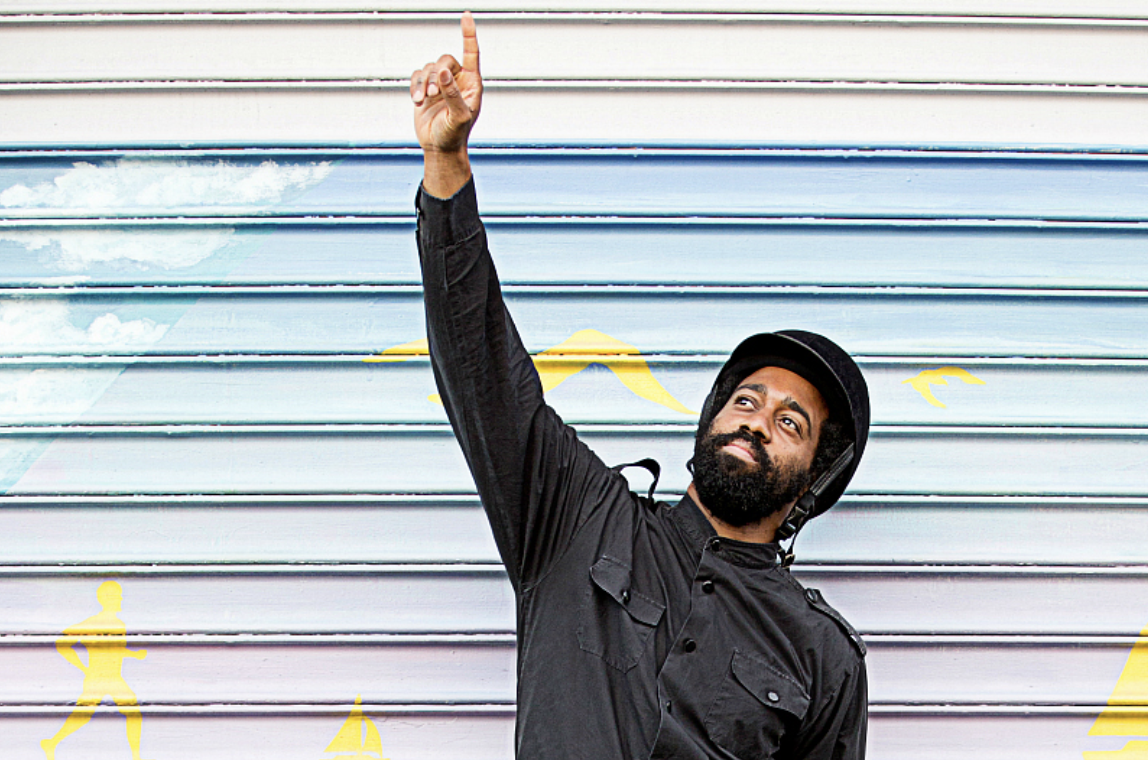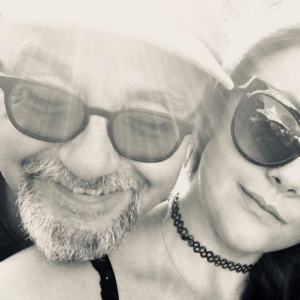KURATED NO. 247
NEW RELEASE
Map of a Blue City by Marc Ribot

Marc Ribot’s new album features
his voice for the first time
CONTENTS
- PLAYLIST Spotify and YouTube
- ONE SONG: Elizabeth
- VIDEO SONG: Death of a Narcissist
- INTERVIEW: Marc Ribot in The Guardian

MARC RIBOT SINGS!
Guitar legend leads on vocals
The discordant, angular guitar lines that typify Marc Ribot’s often raw and unconventional sound are mostly absent on his new album Map of a Blue City. For the first time his voice – quietly calm, sometimes unclear – is up front. Lending it to a selection of mostly original tunes addressing loss and similar themes, Ribot shares a heretofore unknown part of himself – how and what he thinks about.
“There are some hard truths and cold observations in these songs. I wanted the room to be small enough so that we couldn’t turn away but warm enough to feel like you’re hearing it from a friend.” he told Glide magazine.
Those truths are shared both subtly and with a bit of edge. Most of the cuts couldn’t be better. They show attention to detail, superb instrumentation and varied arrangements. While there’s a quiet warmth and intimacy in Ribot’s delivery, some of the songs are shy on melody. And, uncluttered as they are, it’s sometimes hard to make out the lyrics – the collection would benefit from a lyric sheet.
While the music is the album’s high point, it’s a delight to hear words spring from the man we’ve long identified only through his unique riffs. It adds an engaging dimension to the guitarist who has backed a wide range of famous singers.
The seasoned session player’s artistic profile and influence are huge. His collaborations with Tom Waits helped define the artist’s sound on collections like Rain Dogs, Mule Variations and more. He’s worked with Elvis Costello, Marianne Faithful, Robert Plant and Alison Krauss, Hal Willner, Neko Case, Meshell Ndegeocello, T-Bone Burnett, Laurie Anderson plus a host of others. In addition there are any number of side projects including his jazz work with John Zorn, Ceramic Dog and Jazz-Bins. He’s a busy man – Discogs.com indicates that Ribot has performed on 576 individual releases.
Some of the nine songs have been 30 years in the making. Ribot started the project, set it aside and in 2014 enlisted his friend and producer, the late Hal Willner, to polish the lo-fi demos he’d created. But, preferring his own versions over Willner’s, he hit pause again until engaging producer Ben Greenberg (of Brooklyn industrial band Uniform) to help shape the tracks into sounds he liked. Finally, last week, the album was released.
The usual disquieting guitar interventions Ribot the guitarist specializes in are replaced by the themes he sings about including death, disorientation, climate change and being wrong about love. For example, the opening song, Elizabeth, addresses his father’s death. For Celia is inspired by Heinrich Heine’s poem The Lorelei and Holocaust imagery. “The song is about not trying to impose a romantic narrative on history,” he told the Guardian this week, “and instead looking upon it like the disaster it is.” He covers the Carter Family’s 1930 song When the World’s On Fire adding a few phrases and he fashions a melody around Allen Ginsberg’s poem Sometime Jailhouse Blues.
And just to make sure listeners knows it’s the real Marc Ribot playing here, the album closes with a longish, buzzing instrumental ambient piece – Optimism of the Spirit.

In his own words: Ribot comments on the songs
In an interview with Magnet Magazine, Ribot offers brief summaries of each track:
1) Elizabeth
“Only those who have seen the ‘natural’ cycle of life from both ends understand just how wrong nature really is.”
2) For Celia
“Based on conversations with friend and documentary filmmaker Celia Lowenstein, the song documents the impossibility of fitting human disasters—from the intimate to the grand historical—into our redemptive narratives.”
3) Say My Name
“A falsetto R&B Psyche and Eros—electrified by Greg Lewis’ Hammond.”
4) Daddy’s Trip To Brazil
“A hungover post-punk echo of Jobim’s famous ‘Wave,’ importing the ennui of a late-capitalist touring musician into that tropicalismo paradise.”
5) Map Of A Blue City
“The song describes waking up on an elevated train platform somewhere in New York City—maybe Coney Island—and not knowing where you are. The title came from my daughter, who, when she was seven, loved drawing complicated maps. One day, she worked only in blue magic marker. I asked why, and this was her response: “It’s not a blue map. It’s a map of a blue city.”
6) Death Of A Narcissist
“‘I always believed that, in the love of my life, I would find my reflection.’ Some people get it wrong right from the start.”
7) When The World’s On Fire
“The Carter Family recorded this song in 1930. You have to admit they were way ahead of the curve. I added a few lyrics to make it safe for agnostics.”
8) Sometime Jailhouse Blues
“‘Sometimes I lay down my wrath, like I lay my body down.’ A sort of Buddhist blues from someone who saw America more clearly than it saw itself—and tried to respond with gentleness.”
9) Optimism Of The Spirit
“This is a piece we cooked up in the studio in 2008—an ambient improv of mine sliced, diced, spiced and scrambled into François Lardeau’s brilliant remix and percussion omelet. The astute listener may notice that it has nothing to do stylistically with the rest of the album. But sometimes that’s a good thing.”

31 May 2025





